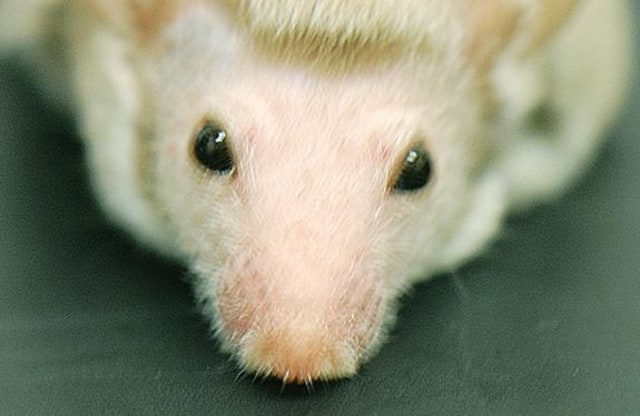It's not every day you see a mouse
with a mohawk. But that's what researchers saw while studying mice that
had a genetic mutation linked to autism.
The mohawks that the
mice were sporting actually resulted from their "over-grooming"
behavior, repeatedly licking each other's hair in the same direction.
The behavior resembles the repetitive motions displayed by some people with autism,
and the researchers say their experiments reveal a link between the
genetic causes of autism and their effects on the brain, suggesting
potential avenues for treating the disorder.

Nature via Live Science
"Our study tells us that
to design better tools for treating a disease like autism, you have to
get to the underlying genetic roots of its dysfunctional behaviors,
whether it is over-grooming in mice or repetitive motor behaviors in
humans," study researcher Gordon Fishell, a neuroscientist at NYU
Langone Medical Center, said in a statement.
Autism is a spectrum of
developmental disorders that involve social impairments and
communication deficits. People with autism may also engage in repetitive
behaviors, such as rocking or hand flapping. [ Beyond Vaccines: 5 Things That Might Really Cause Autism ]
In the study, detailed today (May 25) in the journal Nature, the researchers bred mice that lacked a gene for a protein called Cntnap4, which is found in brain cells called interneurons.
Having low levels of
this protein leads to the abnormal release of two brain-signaling
molecules, known as dopamine and GABA. Dopamine is involved in
sensations of pleasure; GABA (which stands for gamma-aminobutyric acid)
dampens neural activity and regulates muscle tone.
Mice that lacked the gene for this critical brain protein were found to obsessively groom their fellow animals' fur into mohawk-like styles, suggesting a link between genetics, brain function and autistic behaviors.
"There have been many
candidate genes implicated in contributing to autism, but animal and
human studies to identify their action have so far not led to any
therapies," Fishell said in the statement. "Our research suggests that
reversing the disease's effects in signaling pathways like GABA and
dopamine are potential treatment options," he said.
— Tanya Lewis, LiveScience
No hay comentarios:
Publicar un comentario